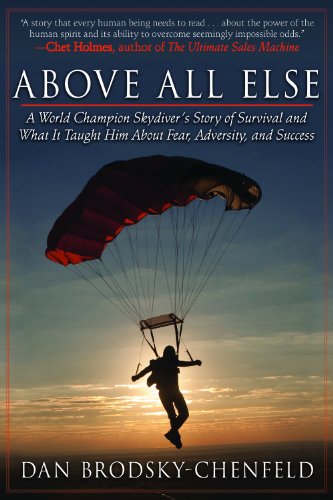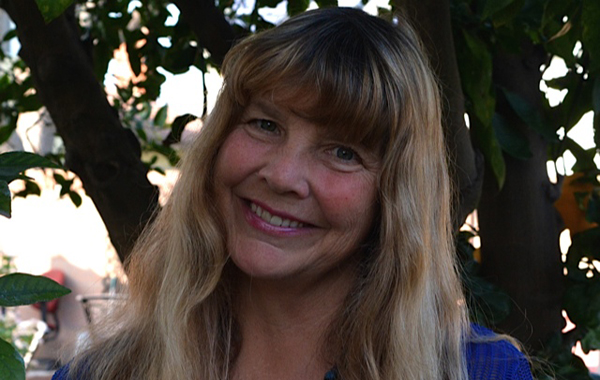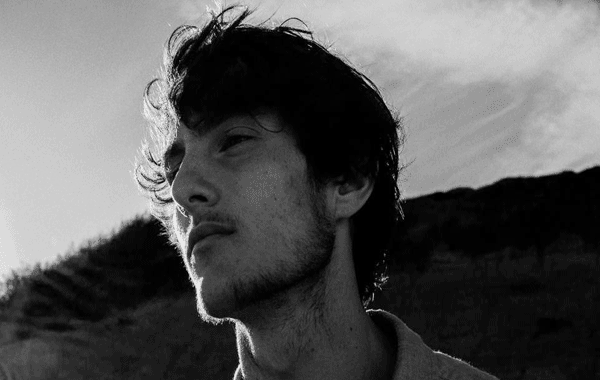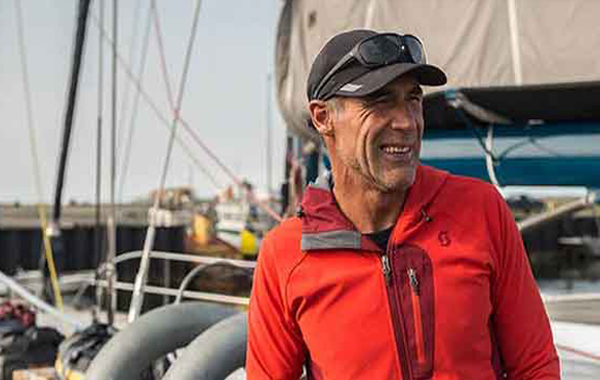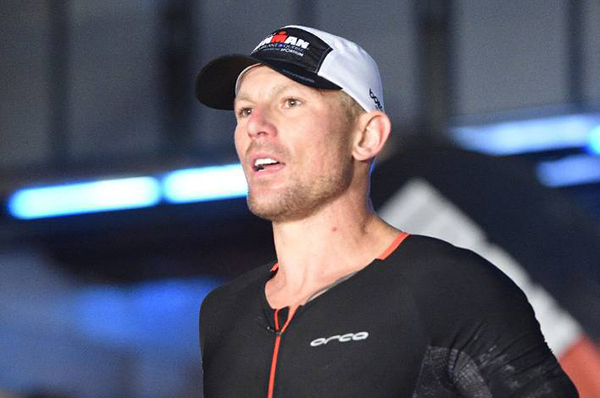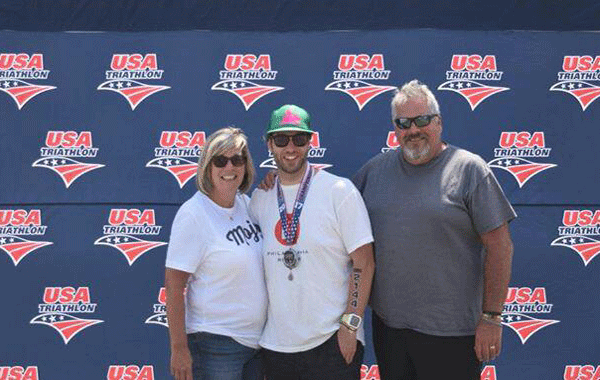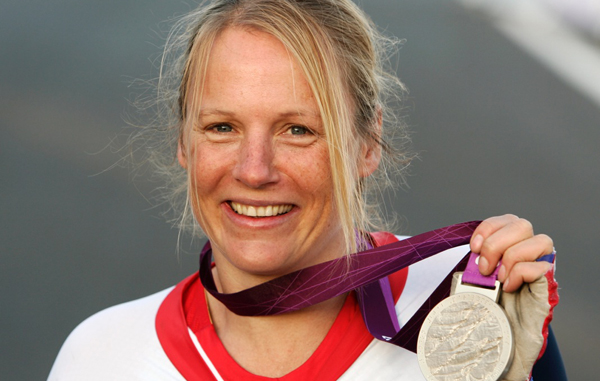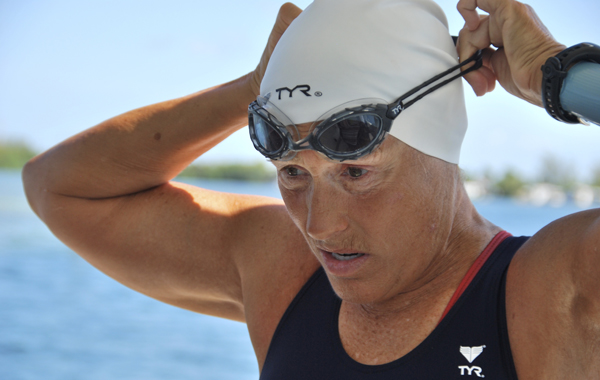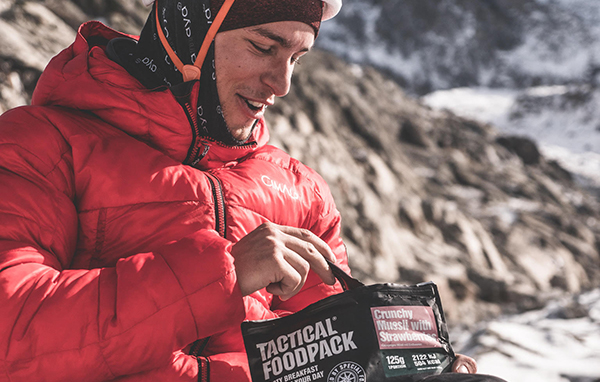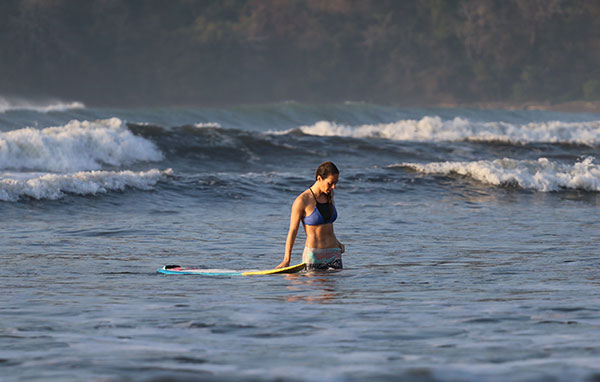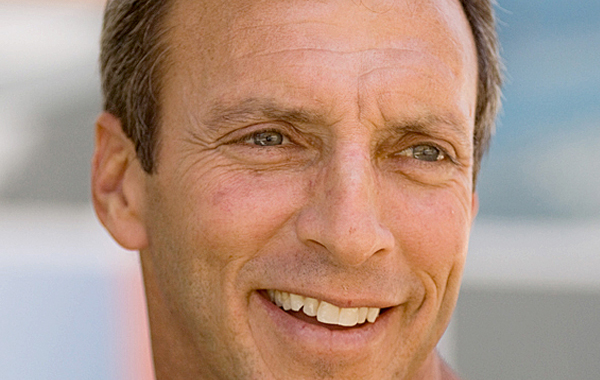
DAN BRODSKY-CHENFELD’S extraordinary talent for bringing out the best in others has made him one of the most influential people in the sport of skydiving and one of the most sought after coaches in the world. His strategies have led him to victories as a coach, competitor, husband, father and business owner.
A rising star in the international world of skydiving, Dan Brodsky-Chenfeld survived a plane crash which killed 16 of the 22 people on board. He was left critically injured and woke up from a six-week-long coma with a broken neck, cracked skull, severe head trauma, a collapsed lung and other serious internal injuries.
Against all odds, Dan recovered and went on to lead the USA four and eight person skydiving teams to multiple World Championships. He also put together a team of 300 skydivers and set a new World Record for the largest freefall formation.
Dan currently runs Skydive Perris (www.skydiveperris.com) in Southern California, one of the world’s premier skydiving centres. He resides in Carlsbad, CA with his wife Kristi, son Landen, who is a student at Horizon Prep, and daughter Chloe, a sophomore at Chapman University.
How did you become involved in skydiving and when did your ambition to become involved in the sport begin?
The first time I saw film of people in freefall I knew that skydiving was the closest thing there was to true human flight.
Like many little kids when I was a young boy I dreamt of flying. I loved watching birds soar through the sky and wanted to have the same freedom that flight gave to them. The first time I saw film of people in freefall I knew that skydiving was the closest thing there was to true human flight. As soon as I reached 18 I went for my first jump. Flying in freefall was even more fabulous than I had imagined. Many people think skydivers are just crazy adrenalin junkies simply plummeting out of the sky. That’s not it at all. We are flying. Relative to other skydivers we are in freefall, we have complete control, complete manoeuvrability. There is nothing else like it.
A few months after my first jump I discovered skydiving was an internationally competitive sport. I was drawn to the sport because skydiving on a team was the best way to improve my flying skills. The best opportunity to learn to fly sharper, faster and with more precision. And the better you can fly, the more fun it is.
What are your achievements in the sport so far and what are your goals for the future?
I’ve been involved with many aspects of skydiving including teaching new students, organising world records, and running large skydiving centres. I am a licensed pilot, parachute rigger, instructor and USPA safety and training advisor. I’ve competed at the US National Skydiving Championships every year for the last 31 years and have more than a dozen National Championships and half a dozen World Championships. This sport has given me the opportunity to travel the world to coach teams and compete. And the honour of having friends in countries on every continent.
You were involved in horrific plane crash in 1992 but then went on to lead the USA four and eight person skydiving teams to multiple World Championships and have since achieved much more. What effect did the crash have on you in terms of skydiving and has it motivated you in your drive for success in the sport?
The crash taught me how fragile life can be. It made it very clear that things can happen which are out of our control that could change our lives forever, or even possibly end them. It reminded me to not waste a second. To follow my heart, and passions and to go after the things I loved in life.
How many times have you jumped from a plane and do you skydive every day?
I have over 25,000 jumps and still do about 300 a year. Not necessarily every day unfortunately.
What can readers expect from Above All Else and do you have any plans for a second book?
Above All Else is definitely not just for skydivers. I hope it is a book that everyone from teenagers to senior citizens can get something out of. In a nutshell, it is about finding the courage in yourself and the confidence in the world to go after your dreams. No matter how big or small those dreams might be.
Could you tell us your involvement with the team of 300 skydivers and the new World Record for the largest freefall formation?
Building large formations of skydivers in freefall is one of the pinnacles of our sport. Competition demonstrates the skills of the top athletes, large formation records display that of the overall skydiving community.
From the time the first two skydivers managed to fly together and ‘hook up’ in freefall, skydivers, who are generally competitive by nature, have been trying to beat the record. It went from two to three to five to 12 and ultimately reached 100, then 200. Three-hundred became the big challenge. Not only did it require 300 capable skydivers, now we also needed aircraft that could carry that many skydivers to an altitude high enough to have the freefall time required for the job. At that altitude we also needed O2 systems in the aircraft for each person.
Another group of large formation skydive organisers called the ‘World Team’ had connections with the governments in Russia and Thailand. In separate events the militaries from both countries had provided large military aircraft capable of carrying over 100 skydivers each to altitudes of 24,000 feet. These aircraft were perfect for the task. Several attempts at the 300-way record were attempted but came up short. A couple of my teammates and I decided to take on the challenge.
We didn’t have any government support. Our only option was to do the record in the US using sport skydiving aircraft. It took 14 planes each carrying 23 people. The highest altitude they could go to was 21,000 feet. It was an incredible challenge that required a level of expanded team work I had never experienced before. But we built an international team of the best skydivers in the world from over 26 countries and succeeded.
Years later the World Team went on to break this record in Thailand with a 400-way! World records are temporary and the sport never stops advancing.
You often speak to wide variety of groups and individuals, including business executives and violent youths, teachers and students, athletes and coaches. What is the most important aspect of the message you try to leave them with and how do you find public speaking and interacting with people from such varied backgrounds?
It is an honour to be in a position where I may have information or a perspective that could be of use to others. If I’m capable of offering something valuable to a person or a group I feel obligated and eager to share it with them. No two people, and certainly no two groups, are exactly the same. But we’re not that different either. We all have goals we want to achieve, something we want to strive for. If we don’t, we should.
In brief, I try get each group (or individual) to identify its specific goal and then to ask themselves the first question. “Is it possible for me to succeed?” Not “Will it be easy?” Not “If I do the work am I guaranteed to succeed?” Just, “Is it possible?” Could the circumstances exist that make it even remotely possible for me to succeed? If the answer to that question is “yes”, the next question is, “Do I want it badly enough to do what it’s going to take to make it happen?” The answer to this question makes people take ownership of their actions.
If they decide not to go after their goal they can’t blame anyone or anything else. No excuses, they simply didn’t want it badly enough to do what it was going to take. We all have the tendency to blame the circumstances for holding us back. It gives us a convenient excuse and allows us to feel better about not succeeding. These questions remove that. It’s you and only you that can make your goals happen. Put up or shut up. You get the idea.
This fall I am speaking at the GrowCanada conference to the top people in the Canadian agriculture industry and also to the Chief of Naval Operations Strategic Studies Group. A think tank of top individuals from each branch of the military. I guess the message is working for a broad range of people with quite the span of goals.
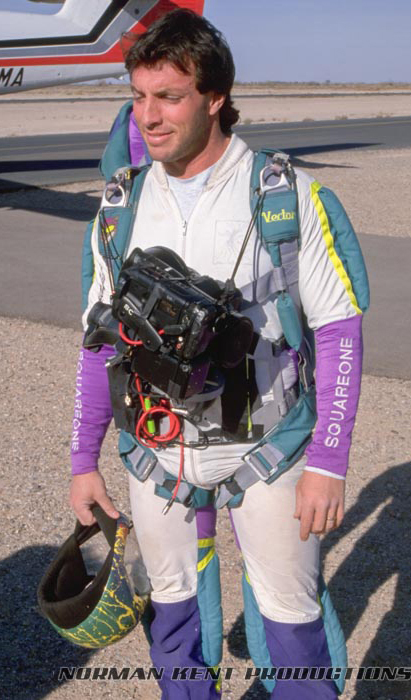
What advice would you give to those inspired by your achievements as a skydiver and what advice would you give to someone thinking of a skydive for the first time?
Many people don’t go after their goals because they are afraid to fail. If after putting your heart, soul, blood, sweat and tears towards your goal you come up short, it’s okay. I lost many times before ever winning, failed before achieving, and continue to do so every day. There is more to be gained during the process and experience of going after your goals than actually accomplishing the goal itself. I learned and grew so much before I ever won a gold medal. It would have been well worth the effort even if I had never achieved that goal. Ask yourself the two questions. “Is it possible for me to succeed”? “Do I want it badly enough to do what it’s going to take to make it happen?”
Do I want it badly enough to do what it’s going to take to make it happen?
If you answer “yes” to both then you gotta go for it. That’s what life’s about.
With the modern technology and training everyone can skydive. At my drop zone Skydive Perris last year we took Vern Maynard on his first skydive for his 100th birthday. But skydiving isn’t for everyone. I know courageous men and women who have taken far riskier challenges but have no desire to jump from a plane. They look at skydiving video and think, “Why would anyone want to do that?” But if you see pictures or film of skydivers and think it looks fabulous, if you see birds and wish you could fly like they do, if you look up at the sky and want to touch the clouds, then you should experience skydiving. It will be the experience of a lifetime that will change you forever.
For personalised or signed copies of Dan’s book click here

